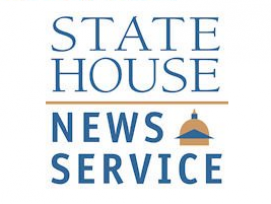Lawmakers Weigh Solutions For “Terribly Underfunded” Primary Care

DATE : September 13, 2023
It was pretty clear which of the 24 bills on the docket Tuesday would command the bulk of the Health Care Financing Committee's attention from the get-go. Five people were signed up to testify on a health disparities bill and another three wanted to weigh in on a hospital costs measure.
But there were 35 people who wanted to share their thoughts on S 750, a Sen. Cindy Friedman bill that seeks to ratchet up investment in primary care and to change the way primary care providers are paid, during a hearing that shed some light on the myriad issues the committee might try to wrestle into an omnibus bill sometime this session.
Primary care, the bread and butter work of keeping people healthy before they require emergency room or hospital care, has been the target of recent health care reform efforts. Friedman, the Senate's point person for health care legislation, has been focused on the issue for years and Gov. Charlie Baker attempted in 2019 and 2022 to require providers and payers to increase their spending on primary care and behavioral health by 30 percent.
"We know that primary care is the backbone of our health care system. And yet only a small fraction of our spending goes to primary care and, in fact, a small fraction of our medical doctors are going to primary care. This is a deeply concerning and great cause for alarm and urgency," Friedman, the Senate co-chair of the committee, said Tuesday. "And so in order to improve outcomes for everybody, including the most marginalized and underserved, we need to address this problem. Massachusetts deserves a health care system that can keep them healthy."
She added later in the hearing, "If we don't fix this problem, we will not have a functioning health care system."
Friedman's bill would require the Health Policy Commission and Center for Health Information and Analysis to set a primary care expenditure target for the state and individual health care entities so that primary care accounts for between 12 percent and 15 percent of total health care expenditures by 2029, according to her bill summary.
Dr. Russell Phillips, a primary care doctor at Beth Israel Deaconess Medical Center and director of the Harvard Medical School Center for Primary Care, told the committee that primary care spending is currently about 5 to 7 percent of the total.
"Those who work in primary care struggle to meet patients' needs and are exhausted and burned out. As they retire early or exit the field, too few take their place and many of us are finding it difficult to find openings for new patients," he said.
The bill would also create a new board under the HPC charged with developing "a primary care prospective payment model that will allow providers to receive a lump sum monthly payment for all primary care services delivered, adjusted by a provider's adoption of primary care transformers established by the board, the quality of patient care delivered by a provider, and the clinical and social risk of a provider's patient panel."
That new prospective payment model would be supported by a trust fund paid into by an assessment on carriers, providers, provider organization, and for-profit non-traditional health corporations that offer primary care services in Massachusetts.
Phillips said the monthly prospective payments would "largely replace our fee-for-service system, which is currently destroying primary care."
Rep. John Lawn, the House's co-chair of the Health Care Financing Committee, said during Tuesday's hearing that he thinks there is widespread agreement that something has to change. But exactly how that change should come about is what could take lawmakers some time to agree upon, if they can agree at all.
"Clearly, we're at a crossroads in trying to figure out how we invest in primary care but also the workforce, right, and how do we get over that hump? I think we all agree that primary care is terribly underfunded. It is the path to better health outcomes, to equity. But how we get there is just a challenge," he said. Lawn added, "We can agree, we just got to figure out how we get there and who, you know, how we pay for things."
Lawn referenced a Boston Globe article from this week in which the head of the Massachusetts Association of Health Plans said the group supports the concept of increasing spending on primary care and that Friedman's bill included "the right ideas" but that "some of the mechanisms are flawed."
Passing health care legislation on Beacon Hill is always a complicated exercise. The two Democrat-controlled branches attempted to pass a major health care reform bill to shore up the finances of community hospitals in 2018, but talks collapsed at the eleventh hour as the session ended.
In 2019, Baker's primary care and behavioral health investment bill was pushed aside as the COVID-19 pandemic commanded state government's full attention. And last year, the Senate prioritized a mental health parity bill and legislation targeting the high cost of prescription drugs while the House focused on strengthening oversight of hospital expansions with an eye toward controlling cost in the system and protecting smaller community hospitals.
By Colin A. Young, State House News Service, September 13, 2023
